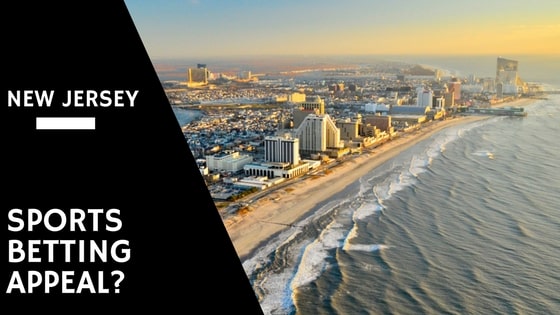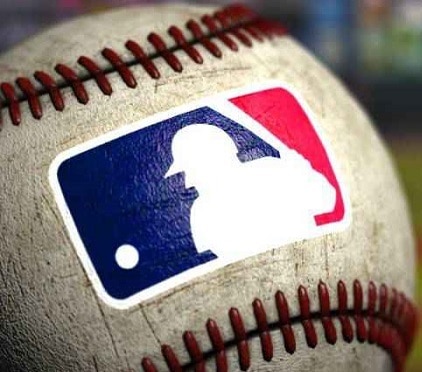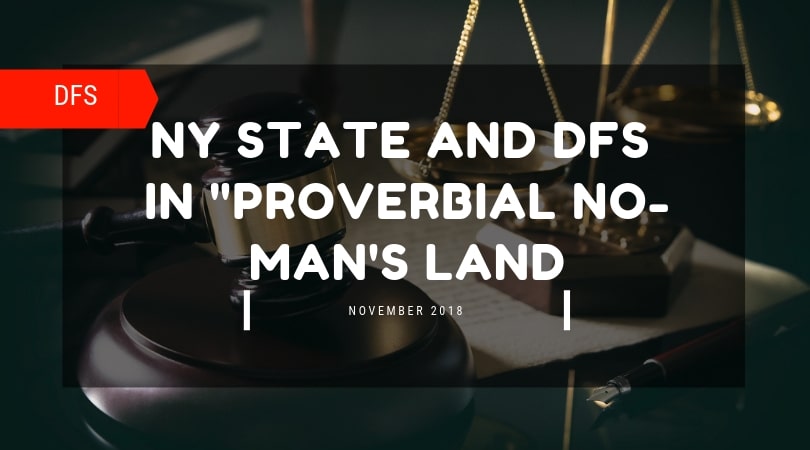New Supreme Court Filings for New Jersey Sports Betting Appeal

The state of New Jersey is currently wrangling with its third attempt to legalize sports betting within their borders. The latest filings for the appeal have only recently been submitted and it marks the last steps before the US Supreme Court decides whether or not to hear the state’s appeal.
The Latest Update on the Case
State officials in New Jersey are of course hoping that the Supreme Court with hear their case. The state is also hoping that the Supreme Court of the United States (SCOTUS) will allow the partial repeal of their own federal law and allow New Jersey to offer sports betting within their borders. They have continually argued that the federal law, The Professional and Amateur Sports Protection Act (PASPA), is unconstitutional.
The Professional and Amateur Sports Protection Act
The Professional and Amateur Sports Protection Act (PASPA) is also knowns as the Bradley Act. It has been in effect since 1992. PASPA aims to stop the spread of sports betting in the USA. Under the law, four states could continue with their practices of sports betting as it had already been written into their laws at the time PASPA was issued. This includes Nevada, Oregon, Delaware and Montana. Any new states wanting to legalising sports betting would face certain restrictions. The law still prevents most forms of sports betting around the country.
Backstory of the New Jersey Sports Betting Case
The state has till date made two attempts to legalise sports betting within their borders. However, they lost at both of their previous efforts. The latest defeat came earlier in the summer of 2016, when an en banc panel of the Third Circuit Court ruled 9 – 3 against the state of New Jersey. They too had cited violation of the PASPA laws as their main reason for opposition in the case.
Some legal experts thought that one of two things could happen to give New Jersey more of a fighting chance; unfortunately for them, neither materialised. Firstly, one theory suggested that the sports leagues would ask for a SCOTUS review to put the issue of the constitutionality of PASPA to rest. Secondly, there was some hope that the National Basketball Association (NBA), would cease to support the opposition. The NBA, which has been a proponent of a federal framework for regulated US sports betting, once again joined the other sports leagues in their latest filing.
Now both the sides are waiting to hear whether or not the Supreme Court will agree that the appeal should be heard.
Replies by New Jersey and the NJTHA
On Wednesday, the 28th of December 2016, the New Jersey Governor, Chris Christie and the state’s Thoroughbred Horsemen’s Association (NJTHA) filed short replies in their request for the SCOTUS review. It came after the National Collegiate Athletic Association (NCAA) and the major North American professional sports leagues – the National Football League (NFL), National Basketball Association (NBA), National Hockey League (NHL) and Major League Baseball (MLB), made their case against the appeal.
The New Sports Betting Brief
This is the third attempt for New Jersey to try and get sports betting legalised in the state. It is however, the second time a case involving their sports betting law has been appealed to the Supreme Court. SCOTUS did not agree to hear an appeal the first time it was made.
The filing from the sports association was very clear in their opposition. They reiterated that New Jersey does not bring anything new to the case this time around. The only novel aspect for this appeal is that since their last attempt the state has acquired another adverse decision. Therefore SCOTUS should ignore the appeal entirely.
The Filing read, “The principal difference is that now petitioners have added three more adverse decisions, including one by an overwhelming majority of an en banc court, to the tally of strikes against them. There is no reason for this Court to reach a different result this time around.”
The argument by the sporting leagues and the NCAA continues by saying that New Jersey is clearly in violation of PASPA. The leagues also continue to assert that PASPA is constitutional and does not infringe on the states’ rights.
The filing further read, “The district court, a panel of the Third Circuit, and the overwhelming majority of the en banc Third Circuit all recognized that when New Jersey dictated who could gamble on sports, where they could do it, and on which events they could bet—all with the avowed purpose of enabling sports gambling to take place in New Jersey’s casinos and racetracks—the state had ‘authorised’ sports gambling in violation of PASPA.”
New Jersey’s Filings
The filings came just one day after Gov. Christie said that he believed his state “would have legal sports betting within a year.”
The filing itself had very little that had not already been heard before. It is basically a reiteration of their appeal from October 2016. It mainly addresses the leagues’ arguments that an appeal is not necessary in the case.
Argument by New Jersey
New Jersey continues to argue that PASPA violates the idea of “states’ rights” in the constitution by not allowing them the rights to repeal their own laws. The filing by New Jersey read, “Congress lacks the power to compel a State to prohibit acts under its own state laws. If all a State does is narrow its own state- law prohibitions, there is nothing Congress constitutionally may pre-empt.”
It continued, “But the principle that Congress may not regulate States’ regulation of interstate commerce hardly is dictum; it is a bedrock principle of federalism on which the entire anti-commandeering doctrine is founded.” They also mentioned the latest decision on the case that had come from the Third Circuit earlier last year in their filing. It read, “The Third Circuit’s decision deeply undermines the constitutional anti-commandeering principle and conflicts with decisions of this Court and the other courts of appeals.”
Filing from New Jersey Thoroughbred Horsemen’s Association
The second filing came from the New Jersey Thoroughbred Horsemen’s Association. The NJTHA made the same case. Their filing read, “Federal statutes that pre- empt state law do so as a consequence of the creation of some federal rule governing commerce. That’s not what PASPA does. PASPA regulates the content of state law without any federal rule governing commerce as its foundation.” They also argued that SCOTUS should not wait for a circuit split, which is a ruling that disagrees with the Third Circuit, on the issue of PASPA. They took into account New York’s interest in establishing their own sports betting laws in similar fashion.
The filing further stated, “Respondents would have this court wait until another State follows New Jersey’s path, changes its law, fights with the Leagues in another circuit, and wins in that circuit. But the constitutional rights of one State and its people should not depend on a sister State successfully shouldering the burden of pursuing her own rights elsewhere.”
Christ Chirstie Optimistic about Their Chances
The governor of New Jersey stated rather confidently that he will shortly bring sports betting to his state. Given his record of past defeats on the matter, the reason behind his optimism remains unclear. However, if he does hope to bring legal sports betting in the state’s racetracks and casinos, a review by the Supreme Court is the most likely the right path to it.
His optimism could also have been fuelled by the fact that other states are also starting to look towards a reform of the federal sports betting laws. The filing followed news of New York State attempting a similar challenge on the constitutionality of PASPA. The new filing even mentioned the possibility of yet another state attempting to pass sports betting laws.
Chirstie’s filing read, “In all events, there is no question that petitioners’ constitutional challenge remains novel and splitless; indeed, no other state has ever brought such a challenge (and only five states could be mustered to support New Jersey’s case as amici). Accordingly, in the unlikely event that another state raises this argument and then succeeds in producing a circuit split, there will be time enough for this Court to consider it.”
The en banc court, despite having defeated the last New Jersey appeal, made it abundantly clear that the lawmakers of the state were still free to pass a true repeal. This would include one that actually eliminates its sports gambling prohibitions entirely. It could otherwise alter sports betting laws in other respects that do not go against the restrictions outlined in PASPA.
Next Steps in the New Jersey Sports Betting Case
The future for New Jersey seems uncertain. SCOTUS only hears a small fraction of appeals that come their way. However, despite the string of losses they have suffered, some experts believe, New Jersey has good reason to get their day in the Supreme Court.
The next move for the Supreme Court is to consider the case “conference.” That is when the justices of the court, which currently stands just at eight, vote on whether or not to hear the appeal. That conference has been scheduled to take place on the 13th of January 2017. The disposition on the case is likely to be reached shortly afterwards. It is expected to be announced on the 17th of January 2017. Four of the justices would have to vote to hear the case. If the appeal is rejected, that would mark the end of the road for the case. New Jersey would have to go have to go back to step one and figure out a new way to bring legal sports betting to the state. On the other hand, if SCOTUS does agree to hear the appeal, then the case will move forward. It would be argued in front of the Supreme Court sometime in 2017.










